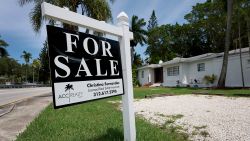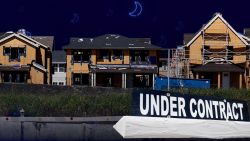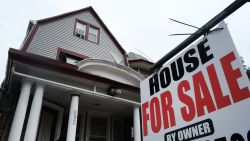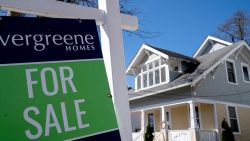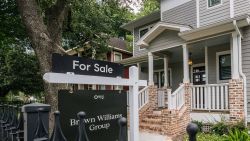Sales of existing homes dropped again in May, marking the third month in a row of declines since the coronavirus outbreak, according to the National Association of Realtors.
Sales of previously owned homes dropped 10% from April and tumbled 27% from last year. The year-over-year decline in home sales – which includescompleted sales of single-family homes, townhomes, condominiums and co-ops – is the biggest drop since 1982, when mortgage rates were at historically high levels.
More from Success
May also had the slowest sales activity since 2010, with 3.91 million properties sold.
All regions of the US experienced dips in sales from last month and last year, according to the report. But the Northeast saw the greatest drop, with sales falling 13% since last month and 30% from a year ago.
“Sales completed in May reflect contract signings in March and April – during the strictest times of the pandemic lockdown and hence the cyclical low point,” said Lawrence Yun, chief economist at the National Association of Realtors.
Yun said he anticipates a V-shaped recovery with a sharp rebound ahead.
“Home sales will surely rise in the upcoming months with the economy reopening,” he said.
Low inventory will push prices up
While the number of homes sold in May declined, the median price ticked 2% higher from a year ago to $284,600. The national median price increase marks 99 straight months of year-over-year gains.
Inventory, or the number of homes available to buy, has been tight in many markets even before the coronavirus pandemic. Total housing inventory at the end of May was down 19% from last year, according to NAR.
That dropis among the most noteworthy numbers in the report, said Mike Fratantoni, chief economist at the Mortgage Bankers Association.
“As buyers are returning to the market, the lack of homes for sale will be a real constraint,” he said. “Although demand certainly dropped in March and April due to the crisis, supply dropped even more, and has thus far kept home prices from declining.”
He expects prices to rise over the summer because of the low supply of available homes.
“New home construction needs to robustly ramp up in order to meet rising housing demand,” said Yun. “Otherwise, home prices will rise too fast and hinder first-time buyers, even at a time of record-low mortgage rates.”
Signs of changes in buyer preference
Sales of single-family homes and condominiums tracked very closely before the pandemic, said Yun. But now a divergence between the two types of properties is emerging.
While the sales of both were down in May, single-family home sales were down 25% from a year ago, while condo sales were down 41% from last year. The price of single-family homes went up 2.4% from a year ago, as condo prices dropped 1.6%.
“Relatively better performance of single-family homes in relation to multifamily condominium properties clearly suggest migration from the city centers to the suburbs,” Yun said. “After witnessing several consecutive years of urban revival, the new trend looks to be in the suburbs as more companies allow greater flexibility to work from home.”
This push toward suburbs with lower density and away from the shared common spaces of multifamily buildings may juice the market, said Yun.
While home sales were down for another month, this interest in the suburbs as more people work from home may propel the market in the near term, said Robert Frick, corporate economist at Navy Federal Credit Union.
“We still expect a strong recovery this summer, which has already started to be fueled by people moving from cities to suburbs as work-from-home becomes policy at many businesses.”



